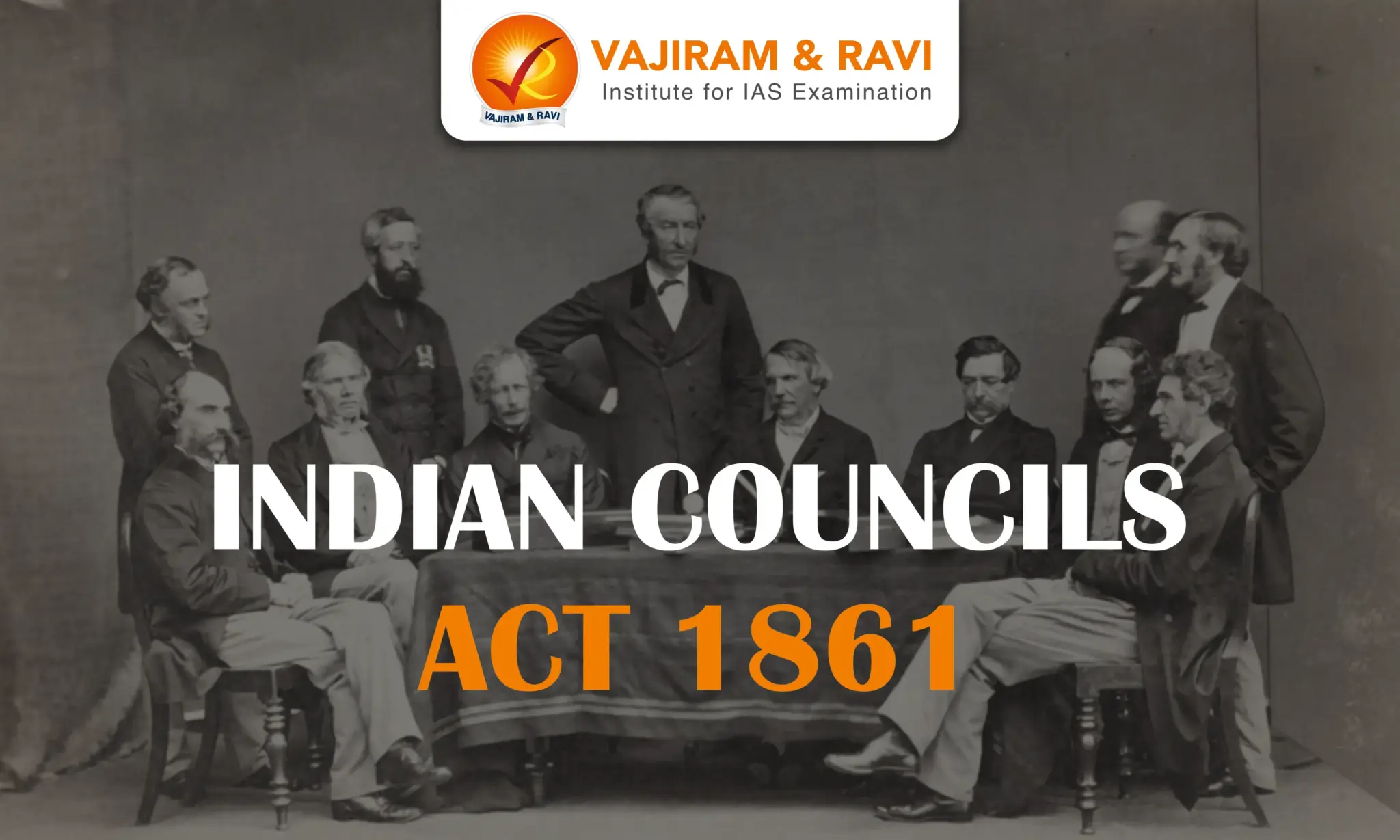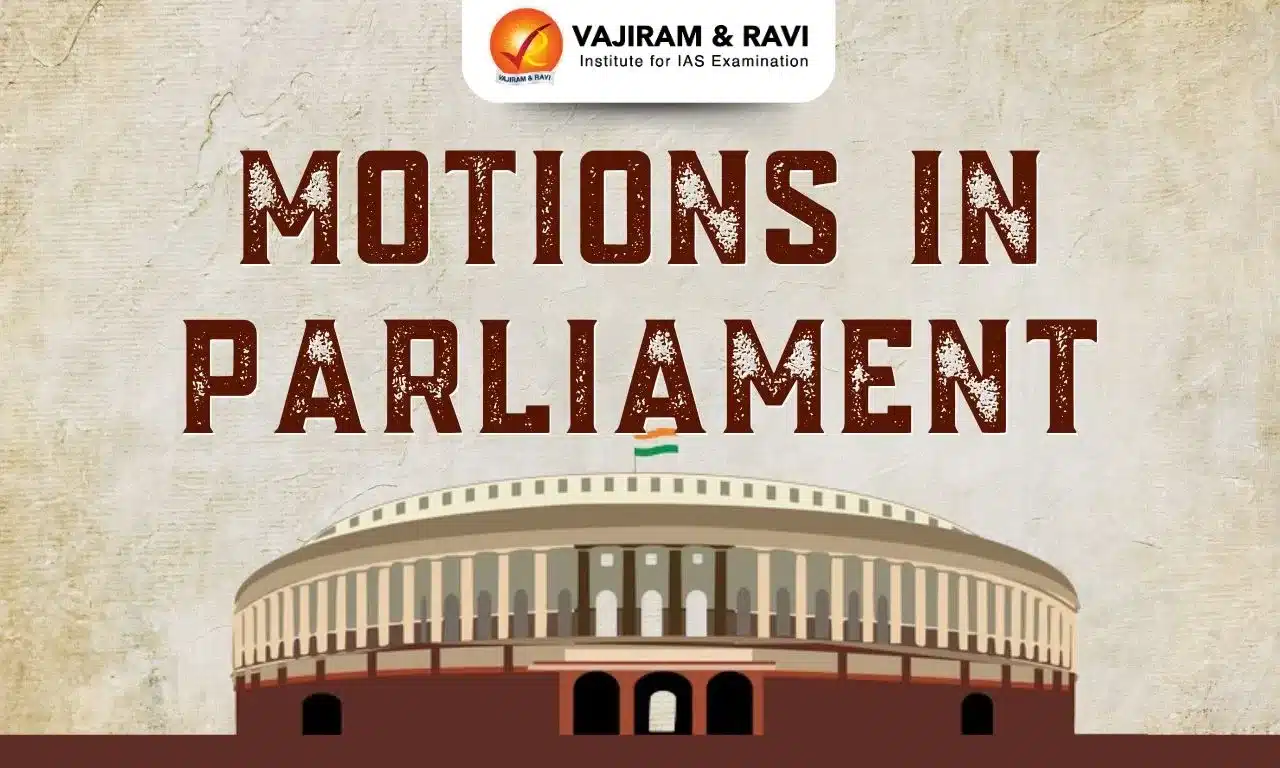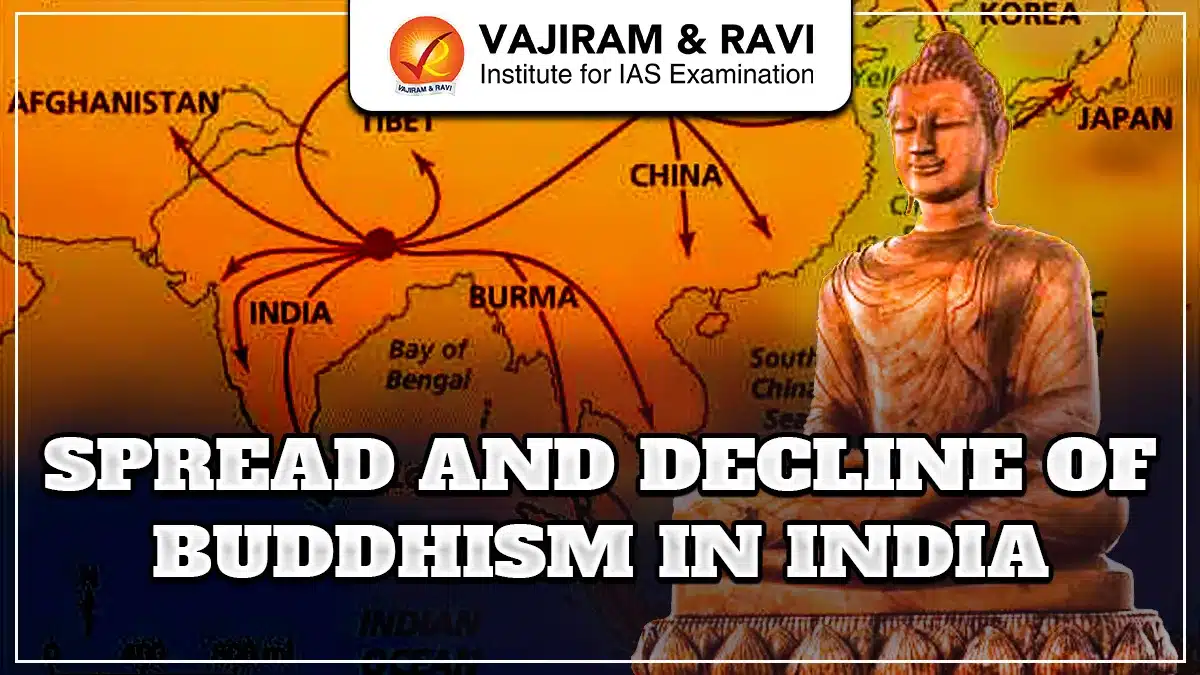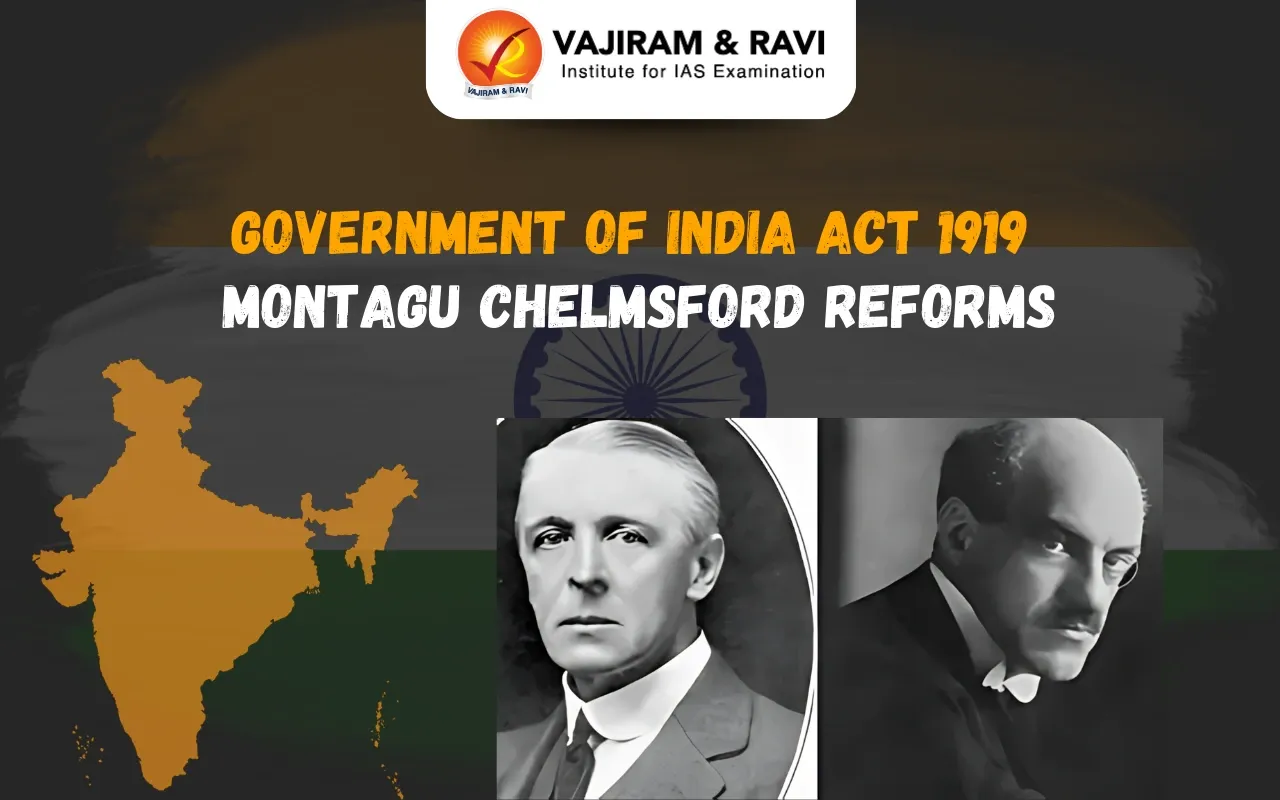The Indian Councils Act of 1861 was a significant piece of British legislation that marked the beginning of Indian participation in colonial governance by incorporating Indians into legislative councils. It also began the decentralisation of power by restoring legislative authority to the provinces. The Indian Councils Act 1861 sought to implement administrative reforms and address governance issues. Despite its limited reforms, the act paved the way for future legislative developments and established a precedent for greater Indian involvement in governance.
Indian Councils Act 1861 Background
In the aftermath of the 1857 Revolt, the British recognized the need for administrative reforms, leading to acts in 1861, 1892, and 1909 aimed at more inclusive governance. The 1861 Act reversed centralization by restoring legislative powers to the Bombay and Madras Presidencies, addressing demands for decentralization and greater Indian representation.
- Aftermath of the 1857 Revolt: The 1857 Indian Rebellion demonstrated the need for administrative reforms and more inclusive governance. The British recognised that excluding Indians from governance could lead to further unrest.
- To carry out this association policy, three acts were passed in 1861, 1892, and 1909.
- The act restored legislative powers to the Bombay and Madras Presidencies, reversing the centralisation trends of the Regulating Act of 1773 and the Charter Act of 1833.
- It aimed to decentralise power for more effective administration and to address the demands of educated Indians for greater participation in governance.
Indian Councils Act 1861 Provisions
The Indian Councils Act of 1861 introduced significant reforms, including the expansion of the Executive Council, the formalization of the portfolio system, legislative devolution to provinces, the nomination of Indian members, the Viceroy's emergency ordinance power, and the authority to regulate council business.
- Introduction of the Portfolio System: The act formalised Lord Canning's 'portfolio' system, which assigned specific government departments to each council member. This was intended to improve administrative efficiency by allowing members to issue final orders within their respective departments.
- Legislative Devolution to Provinces: The act returned legislative powers to the Bombay and Madras Presidency, reversing previous acts' centralisation trends. It also established new legislative councils in Bengal (1862), the North-Western Frontier Province (1866), and Punjab (1897), laying the groundwork for increased provincial autonomy.
- Nomination of Indian Members: According to the act, the Viceroy may nominate Indians to legislative councils. Lord Canning recommended three prominent Indians: the Raja of Benaras, the Maharaja of Patiala, and Sir Dinkar Rao.
- Viceroy's Ordinance Power: The act granted the Viceroy the authority to issue ordinances valid for up to six months during an emergency without legislative council approval. Despite the act's decentralisation measures, this provision emphasised the Viceroy's retained central authority.
- Empowerment to Regulate Council Business: The act empowered the Viceroy to issue rules and orders to ensure that the council runs smoothly, consolidating his control over legislative procedures and improving operational effectiveness.
Indian Councils Act 1861 Significance
The Indian Councils Act of 1861 initiated decentralisation, established the portfolio system, and reversed earlier centralisation trends, paving the way for increased provincial autonomy, administrative efficiency, and future democratic reforms.
- Decentralisation and Legislative Devolution: The act initiated decentralisation by restoring legislative powers to provincial councils and establishing new councils, paving the way for increased provincial autonomy and future reforms such as the 7.
- Administrative Reforms: The act established the portfolio system, which increased administrative efficiency by delegating specific departments to council members and streamlining decision-making processes.
- A Precursor to Future Reforms: The Indian Councils Act of 1861 paved the way for later legislative reforms, such as the Indian Councils Acts of 1892 and 1909, which expanded councils and introduced electoral representation, thereby assisting India's democratic evolution.
- Reversal of Centralisation: The act reversed previous centralisation trends established by laws such as the Regulating Act of 1773 and the Charter Act of 1833, promoting a more localised and responsive governance structure.
Indian Councils Act 1861 Criticisms
Indian Councils Act of 1861 established legislative councils with restricted authority, preventing them from debating important matters or passing legislation without the Viceroy's consent. The majority of Indian representation was symbolic, and centralised authority was primarily maintained.
-
- Limited Role of Legislative Councils: The act established councils with little real power. They could not discuss sensitive issues, financial matters, or executive actions without the government's prior approval. They also had no control over the budget and couldn't pass legislation without the Viceroy's approval. Even if a bill was approved by the Viceroy, it could be rejected by the Secretary of State.
- Token Representation: The inclusion of Indians as non-official members was largely symbolic and limited to elite groups, resulting in limited influence in governance.
- Retained Centralised Control: Despite attempts at decentralisation, the Viceroy maintained significant control, undermining the goals of the Indian Councils Act of 1861.
Last updated on February, 2026
→ UPSC Notification 2026 is now out on the official website at upsconline.nic.in.
→ UPSC IFoS Notification 2026 is now out on the official website at upsconline.nic.in.
→ UPSC Calendar 2026 has been released.
→ Check out the latest UPSC Syllabus 2026 here.
→ Join Vajiram & Ravi’s Interview Guidance Programme for expert help to crack your final UPSC stage.
→ UPSC Mains Result 2025 is now out.
→ UPSC Prelims 2026 will be conducted on 24th May, 2026 & UPSC Mains 2026 will be conducted on 21st August 2026.
→ The UPSC Selection Process is of 3 stages-Prelims, Mains and Interview.
→ Prepare effectively with Vajiram & Ravi’s UPSC Prelims Test Series 2026 featuring full-length mock tests, detailed solutions, and performance analysis.
→ Enroll in Vajiram & Ravi’s UPSC Mains Test Series 2026 for structured answer writing practice, expert evaluation, and exam-oriented feedback.
→ Join Vajiram & Ravi’s Best UPSC Mentorship Program for personalized guidance, strategy planning, and one-to-one support from experienced mentors.
→ UPSC Result 2024 is released with latest UPSC Marksheet 2024. Check Now!
→ UPSC Toppers List 2024 is released now. Shakti Dubey is UPSC AIR 1 2024 Topper.
→ Also check Best UPSC Coaching in India
Indian Councils Act 1861 FAQs
Q1. Why did the Indian Council Act 1861 fail?+
Q2. What is the portfolio system in the Indian Council Act of 1861?+
Q3. Who were the Indian members nominated to the legislative council under this act?+
Q4. What powers did the Viceroy retain under the act?+
Q5. What limitations did the act impose on legislative councils?+


















